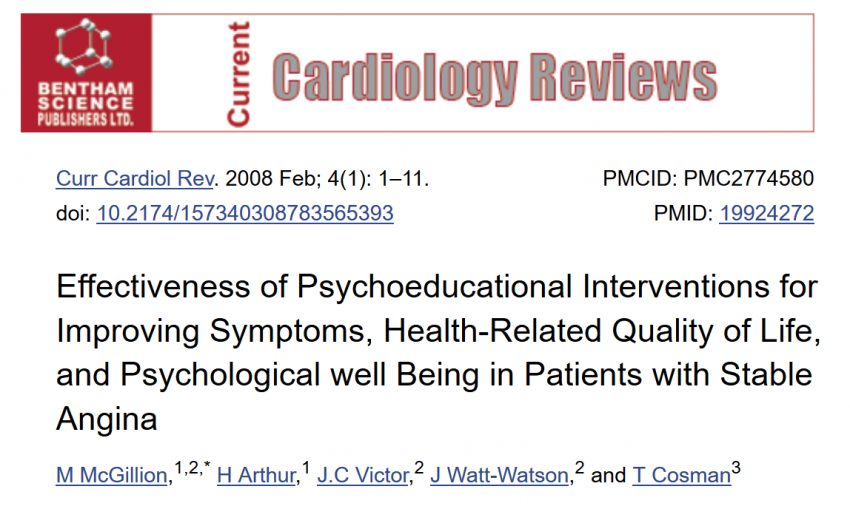This is a meta-analysis by the McMaster University Faculty of Health Sciences that was published in 2008. [1]
The authors investigated the effectiveness of psychoeducational interventions for improving symptoms, HRQL and psychological well-being in stable angina patients. Seven trials with a total of 949 participants. Those who received psychoeducation experienced nearly 3 angina episodes less per week and used sublingual (SL) nitrates approximately 4 times less per week. Significant HRQL improvements (Seattle Angina Questionnaire) were also found for physical limitation and disease perception. A pooled estimate of effect on psychological well-being was not possible due to heterogeneity of measures.
The authors conclude that psychoeducational interventions may significantly reduce angina frequency and decrease SL nitrate use in the short-term. These results must be interpreted with caution, though, due to heterogeneity in methods and small samples. Larger trials are needed to further determine the effectiveness of psychoeducation for the management of stable angina.
1 Mcgillion M, Arthur H, Victor JC, et al. Effectiveness of Psychoeducational Interventions for Improving Symptoms, Health-Related Quality of Life, and Psychological well Being in Patients with Stable Angina. Curr Cardiol Rev 2008;4:1–11.


